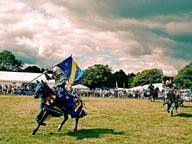Quiz Answer Key and Fun Facts
1. Where did the Renaissance begin?
2. In which of the following centuries did the Renaissance begin?
3. What city is considered to be the birthplace of Renaissance ideas?
4. During the Renaissance there was a rebirth in the knowledge of which ancient people?
5. During the Renaissance the potential of the individual was rediscovered, and it was believed that "Man is the measure of all things". What was this belief called?
6. During the Dark Ages, the learning of the ancients was virtually forgotten by many in western Europe. In which of the following cities was this learning being actively used?
7. Which of the following was NOT one of the areas of change during Renaissance?
8. Who were the first people to use the term "Renaissance"?
9. Changes in religion began to occur during the Renaissance.
10. Changes in life began to occur for common people during the Renaissance.
Source: Author
ponycargirl
This quiz was reviewed by FunTrivia editor
bloomsby before going online.
Any errors found in FunTrivia content are routinely corrected through our feedback system.
